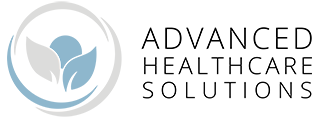FREQUENTLY ASKED QUESTIONS
What is Acupuncture?
In Chinese, these points are called “neural nodes” (jie) and the stimulation of these nodes affects both the central and peripheral nervous systems. It triggers the release of the body’s internal chemicals such as endorphins and enkephalins, which have pain-relieving properties.
Acupuncture promotes natural healing. It can enhance recuperative power and immunity, support physical and emotional health, and improve overall function, and well being. It is safe, painless, and an effective way to treat a wide variety of medical problems.
What is Qi?
At the core of this ancient medicine is the philosophy that Qi (pronounced “chee”), or Life Energy, flows throughout the body and protects if from illness, pain, and disease. A person’s health is influenced by the quality, quantity, and balance of Qi. Qi is often translated in modern terms as the body’s immune system, the digestive system, the neurological systems, oxygen and the circulatory system to name a few.
We like to refer to Qi as our body’s “bio-electricity”.
What will the Acupuncturist do on my first visit?
If we feel we can help you and accept your case, Acupuncture treatments will follow. For treatments, you will lie on a comfortable Spa-Massage table ( which can be heated) in a room with dimmed lights and relaxing music, our Acupuncturist will insert Acupuncture filaments into the specific places necessary to bring about healing. This goes unnoticed by many people, others may feel a slight tingle followed by a sensation of warmth and heaviness. Breathing exercises will be given on your first treatment to help you reduce stress and relax and possibly even fall asleep!
Why does the Acupuncturist check my pulse?
Why do they want to look at my tongue?
The tongue is a map of the body. It reflects the general health of the organs and meridians. Our Acupuncturists will look at the color, shape, cracks, and coating on the tongue. Your Acupuncturist will then explain what they see so you better understand the entire process.
What if I have a lot of symptoms and problems?
Acupuncture is a whole body treatment. Most patients have multiple symptoms or problems. Because it works to treat the entire body, (mentally, physically, emotionally) ailments are able to be treated as a whole at each visit.
Is Acupuncture expensive?
This is not western medicine – you will not receive expensive medications that may mask and hide symptoms. Acupuncture will allow your body to heal itself – in the long term, you will spend much less time and money in healthcare – AND FEEL BETTER.
Will my insurance cover Acupuncture?
- Will my plan cover Acupuncture?
- How many visits per calendar year?
- Do I have a wellness benefit?
What type of education is required to practice Acupuncture?
Is there just one Acupuncture method?
The Balance Method produces instantaneous results making it an invaluable treatment for pain. This style of Acupuncture also helps to create a treatment matrix for some more difficult conditions which have not responded to other types of treatment.
The acupuncture points used are on the scalp and ears, from the elbows to the fingers, and from the knees to the toes. Consequently, the patient never has to take off his or her clothes and the treatments are efficient, comfortable and extremely effective.
